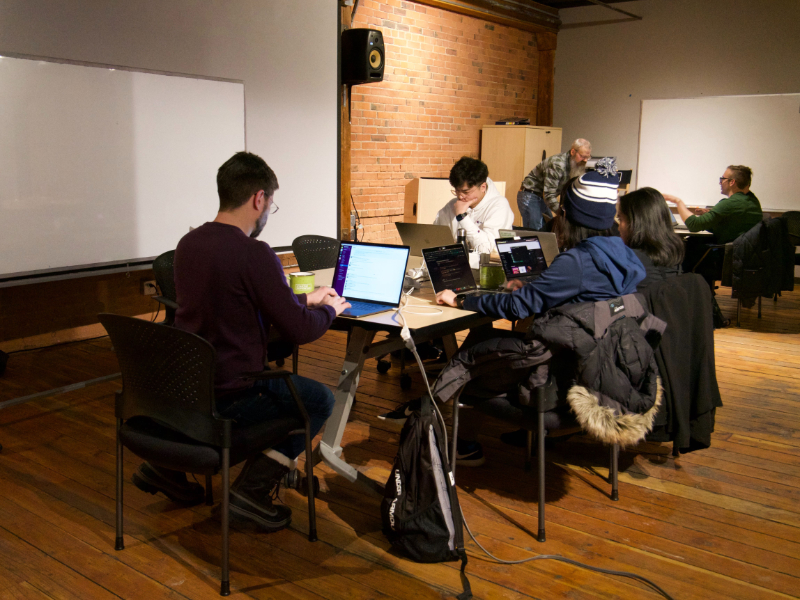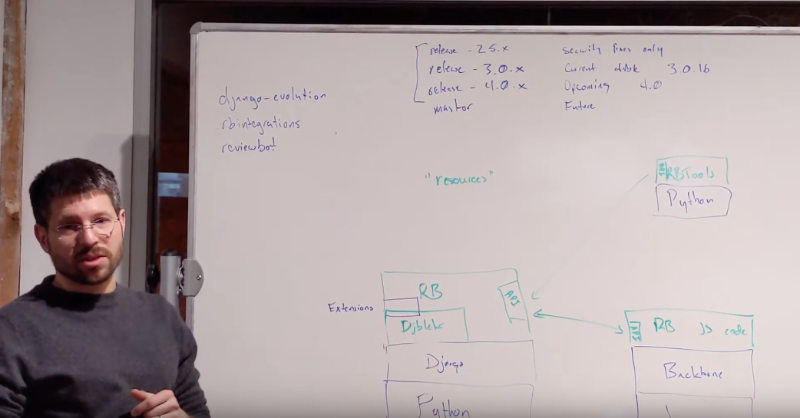If you’re a regular follower of ChangeLog, you’ll notice we’ve gone from weekly to semi-monthly, and may be wondering what’s going on. Don’t worry, we’ll return to our regularly-scheduled ChangeLog in time.
We’ve been focusing heavily on wrapping up Review Board 4.0 development, testing things internally, and helping many of our support customers get out from under a backlog of internal support requests within their companies.
And just taking care of ourselves during a global pandemic.
So here’s some of what we’ve been busy with lately:
- Increasing Power Pack and RBCommons trials
- Several new releases (RBTools, kgb, and introducing babel-plugin-django-gettext)
- Review Board 3.0.18 release preparation
- Review Board 4.0 beta and RBTools 2.0 beta preparation
- Wrapping up our semester with CANOSP students
Higher Power Pack/RBCommons Trial Lengths
We’ve increased the amount of time you have to give Power Pack or RBCommons a try. Now, when you download a Power Pack license, or sign up for a team on RBCommons, you have two full months to fully explore and use the products.
We’ve applied the new trial period to all existing RBCommons customers who are still in their trial.
If you’re a Power Pack user, and have a trial license, come talk to us for an extension.
New Releases
RBTools 1.0.3
Last month, we released RBTools 1.0.3, which was long overdue. We’re going to try to release RBTools releases more frequently going forward, and we have some good stuff prepared for 1.0.4 for Perforce users coming up soon.
We also have two new releases for some tools we use to help build Review Board: kgb, and introducing babel-plugin-django-gettext.
kgb 5.0
kgb is a Python module that helps with writing unit tests, adding support for function spies. This lets you spy on any function or method, whether in your own code or elsewhere, and track all calls made to the function and inspect the results of those calls.
It’s also used to override what happens when a function is called, mocking results or behavior. This goes far beyond the capabilities of Python’s own mock patching, and instead alters things at a bytecode level. Super useful when you want to fake results from urlopen, for example.
kgb 5.0 introduces support for:
- Python 3.8
- New spy assertion methods, providing detailed output when they fail
- Support for spying on “slippery” functions (functions generated dynamically when referencing the function itself — common in some API-wrapping Python libraries, like Stripe)
babel-plugin-django-gettext 1.0
We use Babel to let us build modern JavaScript and export it to older browsers. Something Babel allows for is custom plugins to transform JavaScript, and we’ve introduced a new plugin to help us write better localized text.
babel-plugin-django-gettext lets us mark up strings using modern JavaScript tagged template literals (backtick strings) and convert them to use Django’s gettext localization methods.
When using the standard gettext support, lines are not allowed to wrap, meaning you end up with some very long lines of text to maintain, and if you want to include the contents of variables in the text, you have to wrap in this interpolate() call, which is a pain.
This plugin takes all the annoyance out of this. Instead of writing:
var s = interpolate(
gettext('This is localizated text, and we can freely wrap lines how we want, or include variables like %(foo)s.'),
{'foo': foo},
true);
We get to write:
const s = _`
This is localizated text, and we can freely wrap
lines how we want, or include variables like ${foo}.
`;
Better, right?
If you use Babel and Django, give this plugin a try.
We’ll be releasing a new version soon with even better support for ngettext (used for strings that are based on singular/plural values) and combining with other tagged templates (like dedent).
Review Board 3.0.18 Release Prep
We’re getting close to a new Review Board 3.0.18 release. There’s a lot going into this one, but some highlights will include:
- Preparation for GitHub and Bitbucket API/feature deprecations
- Compatibility fixes for GitLab, Subversion, and Perforce
- Improved API support for working with repositories
- Faster SSH communication
- Faster condensediffs for large MySQL databases
- Lots of bug fixes
Expect 3.0.18 within the next two weeks.
Review Board 4.0 Release Prep
Work continues. We’ve had some people test 4.0 early, and found some regressions that pertain to extensions. We don’t want to release with those regressions in place, so we’re still iterating, but the good news is that the core product is looking pretty good now.
Remember, this release is a major architectural rewrite of the product, with equally major dependency updates, so there’s a lot to get right.
Meanwhile, we’re getting RBTools 2.0 ready for beta. This is meant to be used with Review Board 4.0, and features all the multi-commit review support, from posting changes to landing them. We’ll be shipping both at the same time.
CANOSP Student Wrap-Ups
We’ve talked before about the CANOSP student program we work with in Canada. Well, we’ve wrapped up our semester, and I can speak for the team when I say we’re going to miss working with this group.
By the way, if you’re looking to hire some strong developers coming out of college, we have plenty we can refer.
To wrap up their semester, they’ve put together some final demos of the work they’ve done, and we’d like to show them off.
Hannah Lin
Hannah worked this semester on a prototype for a new first-time setup guide for administrators, and some keyboard accessibility improvements in the diff viewer and modal dialogs, amongst other improvements. She’s also continuing on after the semester, working on a formatting toolbar for input fields.
Katherine Patenio
Katherine worked away on RBTools for most of the semester, fixing some bugs that shipped in RBTools 1.0.3, and completely reworking the rbt setup-repo experience (which we hope to ship in RBTools 2.0).
She also did a lot of work on investigating improvements to supporting users with different kinds of color-blindness, which she covers in this demo.
Monica Bui
Monica focused primarily this semester on keyboard navigation improvements in the New Review Request page (part of a big effort toward improved accessibility), and prototyping new guidance for filling in fields on a blank review request. We think that will pair nicely with work planned for Review Board 5.0.
Xiaohui Liu
Xiaohui worked on standardizing how we handle keyboard shortcuts, introducing a new registry on the page that anything can plug into to register shortcuts. This even offers a handy help screen, giving users an overview of all the keys can happily press to get their work done faster.
Xiaole Zeng
Xiaole’s projects covered help and accessibility improvements, such as adding a new Help menu to the top-right of every page (which could provide access to useful, relevant documentation), and making the review request infoboxes on the Dashboard less annoying and more keyboard-friendly. We’re looking to ship some of this in 4.0.
And that’s it for the moment
We’ll be back to a weekly format once we’ve gotten some of these releases wrapped up, and of course any time we have something pretty exciting to talk about.
In the meantime, if we can help with anything, reach out. You can also follow us on the community forum, Reddit, Twitter, Facebook, and YouTube if you want other ways to keep up with Review Board and Beanbag.





